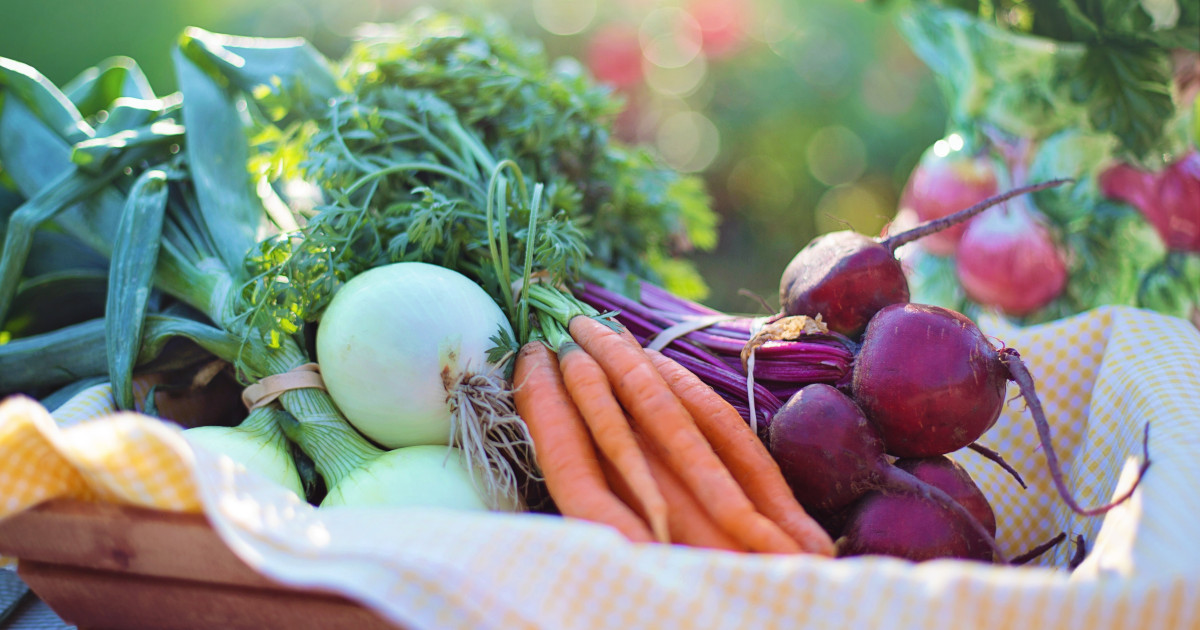
Urgent Action Needed to Save Organic Standards!
December 12, 2018 | Alexis Baden-Mayer
Organic Consumers Association
On Tuesday, December 10, the Senate advanced a version of the Farm Bill, in hopes of passing a bill before the end of the year. While the latest version contains some good news for small independent farmers, it also includes a plan that would weaken organic standards.
Tucked into the final version of the 2018 Farm Bill is a seemingly innocuous provision that would undermine organic standards by severely limiting our ability to get synthetic and non-organic substances off of the “National List” of what’s allowed in organic food and farming.
Ever wonder why we call it “organic” agriculture?
Lord Northbourne, who coined the term in his 1940 book, “Look to the Land,” compared “chemical farming versus organic farming” and described an “organic” farm as one where: “The soil and the microorganisms in it together with the plants growing on it form an organic whole.”
Sir Albert Howard, who adopted Northbourne’s term for the title of his 1947 book, “The Soil and Health, A Study of Organic Agriculture,” emphasized organic agriculture’s use of organic matter to create rich compost to feed soil microorganisms, improve soil fertility and produce nutrient-rich food.
The Rodale Institute, founded in 1947 by J.I. Rodale, has elevated the significance of “organic” being “carbon-based.” Rodale’s research shows that if we converted all global croplands and pastures to regenerative organic agriculture we could sequester more than 100% of current annual carbon dioxide emissions.”
USDA Organic regulations codify these values, defining organic production as:
A production system that is managed … to respond to site-specific conditions by integrating cultural, biological and mechanical practices that foster cycling of resources, promote ecological balance, and conserve biodiversity.
Unfortunately, the National Organic Program has failed to enforce this definition and has instead encouraged the growth of three disturbing trends in the organic industry:
• Factory farmed “organic” meat, eggs and dairy, where animals are kept indoors or out on bare dirt.
• Hydroponic “organic” produce, where fruits and vegetables are grown without soil.
• “Organic” food where the nutrition comes from added synthetic vitamins, minerals and nutrients.
At the crux of each of these issues is a synthetic substance that props up the broken organic system:
• “Organic” egg and poultry producers can deprive their birds of sunlight and access to pasture only by supplementing the feed with synthetic methionine.
• “Organic” hydroponic fruit and vegetable growers rely on synthetic micronutrients in the absence of soil.
• “Organic” infant formula is a soup of synthetic nutrients.
That’s why, every six months, we take consumers’ demands for real organic to the public meetings of the National Organic Standards Board. The NOSB is the standards-setting body for USDA Organic that decides which non-organic substances can be used in organic food and farming. Every five years, each of the non-organic substances allowed in organic is reviewed by the NOSB. The substance will “sunset” (be removed) unless the NOSB votes to keep it in organic.
The corporations that are making money from the use of synthetics in organic don’t want us to have a voice at the NOSB. They have been lobbying Congress to make make it harder for the NOSB to end the use of synthetics in organic:
• The poultry and egg industry has spent $1,395,000 so far this year lobbying Congress. Senate Agriculture Committee Ranking Member and Farm Bill author Debbie Stabenow has been receiving campaign contributions from Herbruck’s, an “organic” factory farm in Saranac, Michigan, that is raising six million birds that produce five million eggs daily.
• The Coalition for Sustainable Organics, the hydroponic industry front group, has spent $180,000 lobbying Congress.
• DSM North America, the company that sells DHA and ARA, synthetic nutrients heavily marketed through organic foods for infants and children, has spent $90,000 lobbying Congress so far this year, and has spent as much as $495,000 in past years.
How would the 2018 Farm Bill make it harder to get synthetic and non-organic substances out of organic?
Under the 2018 Farm Bill, which could be voted on as early as today, two-thirds of the 15-member NOSB would have to vote in favor of removing a synthetic material from organic in order to get the material out of organic.
On the surface that might sound reasonable. But here’s the deal. Historically, the NOSB would approve a synthetic chemical for use in organic solely on a temporary, five-year basis, until an organic alternative became available. After the five-year period was up, the synthetic ingredient would automatically drop off the list of allowed substances. The only way it could stay in organic, was if two-thirds of the NOSB members voted to keep it there.
The change being proposed in the Farm Bill—which allows a synthetic material to stay on the list indefinitely unless voted off—was actually already enacted through a policy change, during an NOSB meeting in 2013. That controversial decision, opposed at the time by Rep. Peter DeFazio (D-Ore.) and Sen Patrick Leahy (D-Vt.), principal authors of the Organic Foods Production Act of 1990, triggered protests and a lawsuit against the U.S. Department of Agriculture (USDA).
The lawsuit was dismissed in May of 2018. However, the court provided the plaintiffs, which include Organic Consumers Association, a roadmap for a future legal challenge. Here’s what that looks like: We need to wait for the five-year approval period for a synthetic material to expire. If the material isn’t re-approved by a two-thirds vote, and isn’t dropped from the National List, we could mount a legal challenge to get the material removed.
That’s exactly what proponents of the proposed change to the Farm Bill don’t want to see happen. So they’re using the Farm Bill to legislate the change, in a move aimed at preventing the courts from overturning the 2013 NOSB policy change.
